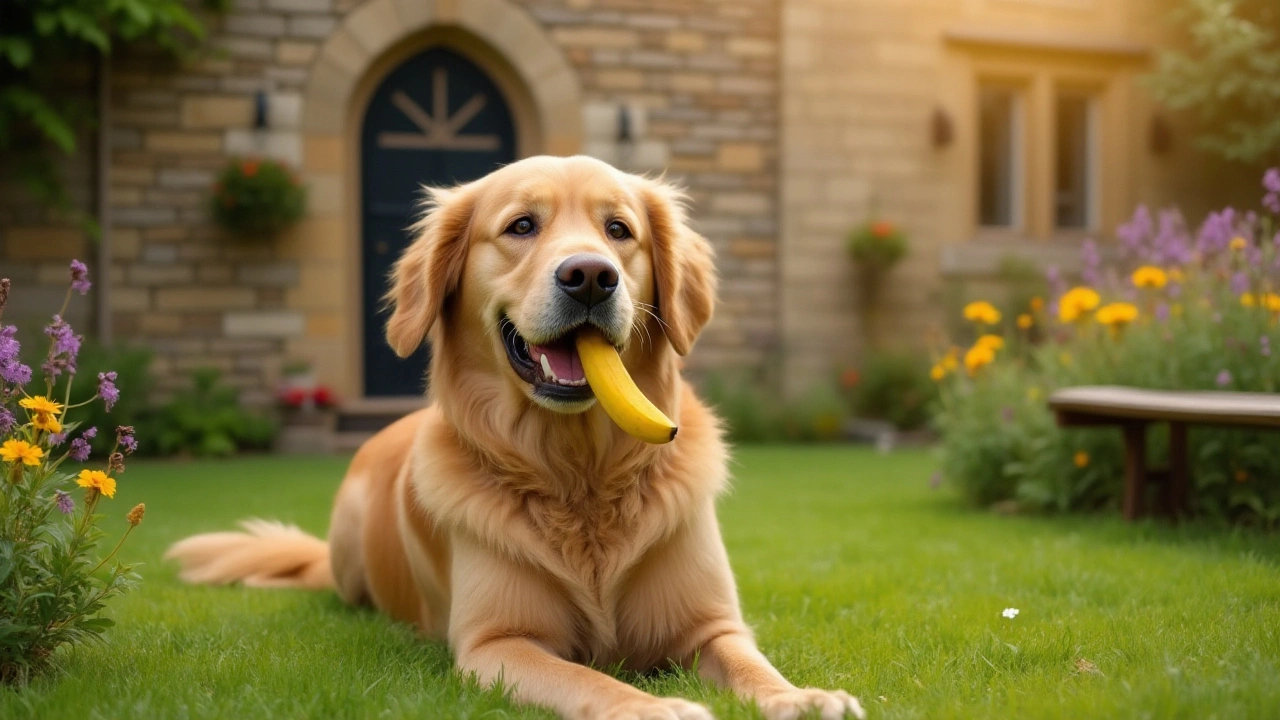Bananas for Dogs – Are They Safe and Healthy?
Ever wonder if you can share that half‑ripe banana with your pup? The short answer is yes, but you need to know the right way to do it. Bananas are low in calories, easy to digest, and packed with vitamins that can boost your dog’s diet. Below we’ll cover why bananas can be a good snack, what to watch out for, and how to serve them without causing any problems.
Benefits of Bananas for Dogs
Bananas contain potassium, vitamin B6, vitamin C, and fiber. Potassium helps keep your dog’s heart and muscles working properly, while the fiber aids digestion and can ease constipation. Vitamin B6 supports brain function, and vitamin C adds a mild antioxidant boost. Because bananas are mostly water, they also help keep your dog hydrated on hot days.
Most owners notice a gentle energy lift after a small banana bite, especially in active breeds. The natural sugars give a quick, clean source of fuel that won’t spike blood sugar like sugary treats do. If your dog is older or has joint issues, the potassium and anti‑inflammatory compounds in bananas may help reduce stiffness.
How to Feed Bananas Safely
Start with a tiny piece – about the size of a pea – and see how your dog reacts. Some pups may have a mild stomach upset the first time they try fruit, so a slow introduction is key. If your dog tolerates the small bite, you can gradually increase to about a tablespoon of mashed banana or a few thin slices.
Always peel the banana first. The skin is tough to chew and contains a lot of fiber that can cause blockages. Cut the fruit into bite‑size pieces or mash it into their regular food for a smooth mix. For dogs that love frozen treats, blend banana with a little plain yogurt, pour into an ice cube tray, and freeze for a refreshing snack.
Watch the portion size. One whole banana a day is too much for most dogs, especially small breeds. A good rule of thumb is no more than 10% of your dog’s daily caloric intake from treats. For a medium‑sized dog, that usually means one to two small slices.
If your dog has diabetes, kidney disease, or a history of fruit allergies, skip the bananas or check with a vet first. The extra sugar can affect blood sugar levels, and too much potassium can strain kidneys that aren’t working well.
Never give banana peels, and avoid canned bananas that contain added sugar or preservatives. Fresh, ripe bananas are the safest choice.
In practice, you can use banana as a training reward, mix it into a homemade dog‑friendly oatmeal, or simply offer a frozen slice on a hot afternoon. The key is consistency – give the same amount each time and monitor your dog’s weight and stool.
So, are bananas good for dogs? Yes, when served in moderation and prepared correctly. They add nutrients, help with digestion, and make a tasty low‑calorie treat. Just remember to start small, peel well, and keep an eye on your pup’s reaction.
Can Dogs Eat Bananas? An Expert Guide on Benefits and Precautions
Bananas are a popular fruit, and many dog owners wonder if these can be a safe and healthy snack for their pets. This article explores the nutritional benefits of bananas for dogs, while also highlighting potential risks. Readers will learn how to safely prepare and serve bananas to their furry friends. Additionally, tips on moderation and alternatives for sensitive dogs are given to ensure responsible feeding practice.
